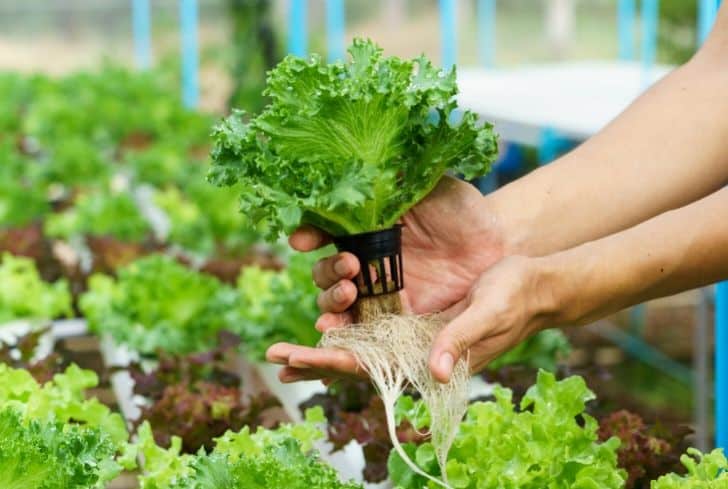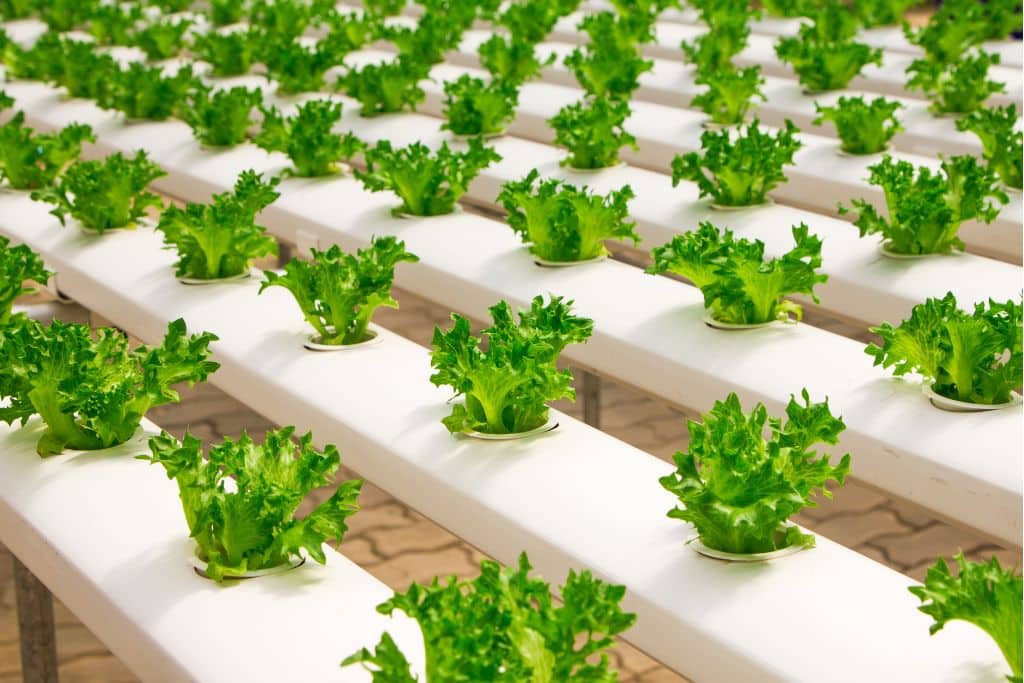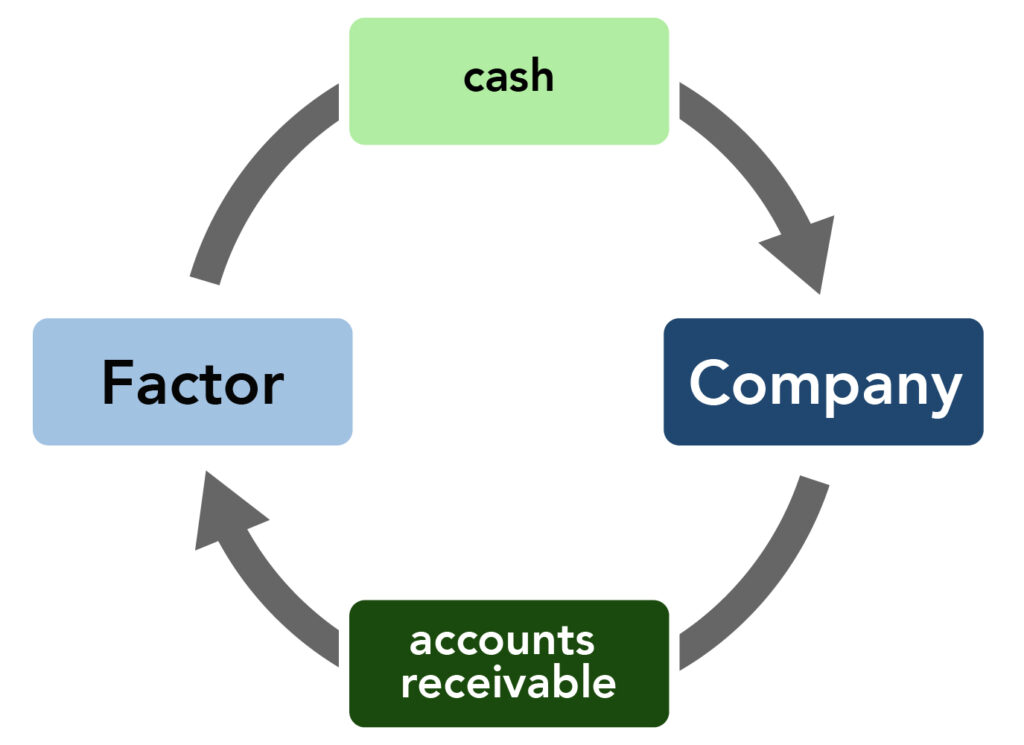hydroponics advantages and disadvantages
Introduction
Hydroponics is a method of growing plants without soil, in which the plants are grown in a nutrient-rich solution. This method of growing plants has gained popularity in recent years due to its numerous advantages. However, there are also some disadvantages to hydroponics that need to be taken into consideration. In this article, we will discuss the advantages and disadvantages of hydroponics.

Advantages of Hydroponics
Water Conservation: Hydroponics systems use up to 90% less water compared to traditional soil-based agriculture. This is because the water in a hydroponic system is recycled and reused, which reduces water waste and helps conserve water.
No Soil Required: In hydroponics, plants are grown without soil, which eliminates the need for soil preparation, tilling, and weeding. This saves time and labor, making hydroponics an attractive option for farmers and gardeners.
Higher Yields: Hydroponics can produce up to 30% higher yields compared to traditional soil-based agriculture. This is because hydroponic systems provide plants with the necessary nutrients in the right amounts, which promotes healthy plant growth and higher yields.
Space Efficiency: Hydroponics systems can be designed to use space efficiently, making them ideal for small gardens or urban farming. Plants can be grown vertically or in a small space, which maximizes the use of available space.
Pesticide-Free: Hydroponics eliminates the need for pesticides and herbicides, which can harm the environment and potentially cause health problems. This makes hydroponic produce safer and healthier to consume.
Disadvantages of Hydroponics
High Initial Cost: Hydroponic systems can be expensive to set up and require a significant investment in equipment and infrastructure. This can be a barrier to entry for some farmers or gardeners.
Technical Knowledge Required: Hydroponics requires technical knowledge and expertise to set up and maintain the system. This can be a challenge for those who are new to hydroponics or lack the technical skills required to set up and maintain the system.
Equipment Malfunction: Hydroponic systems are reliant on equipment such as pumps, timers, and lighting systems. Malfunctions can occur, which can result in crop failure or reduced yields.
Power Consumption: Hydroponic systems require electricity to operate, which can increase energy costs. This can be a significant disadvantage for those operating a large-scale hydroponic farm.
Water Quality: The quality of the water used in hydroponic systems is crucial to plant growth. Poor water quality can lead to plant stress and reduced yields. This means that the water used in a hydroponic system needs to be carefully monitored and maintained.
What are 5 disadvantages of hydroponics?
High Initial Cost: Hydroponic systems can be expensive to set up, requiring a significant investment in equipment and infrastructure. This can be a barrier to entry for some farmers or gardeners.
Technical Knowledge Required: Hydroponics requires technical knowledge and expertise to set up and maintain the system. This can be a challenge for those who are new to hydroponics or lack the technical skills required to set up and maintain the system.
Equipment Malfunction: Hydroponic systems are reliant on equipment such as pumps, timers, and lighting systems. Malfunctions can occur, which can result in crop failure or reduced yields.
Power Consumption: Hydroponic systems require electricity to operate, which can increase energy costs. This can be a significant disadvantage for those operating a large-scale hydroponic farm.
Water Quality: The quality of the water used in hydroponic systems is crucial to plant growth. Poor water quality can lead to plant stress and reduced yields. This means that the water used in a hydroponic system needs to be carefully monitored and maintained.
What are the main advantages of hydroponics?
The main advantages of hydroponics include water conservation, no soil required, higher yields, space efficiency, and pesticide-free produce. Hydroponic systems use up to 90% less water compared to traditional soil-based agriculture, and plants are grown without soil, which eliminates the need for soil preparation, tilling, and weeding. Hydroponics can produce up to 30% higher yields compared to traditional soil-based agriculture, and hydroponic systems can be designed to use space efficiently, making them ideal for small gardens or urban farming. Additionally, hydroponics eliminates the need for pesticides and herbicides, making hydroponic produce safer and healthier to consume.
What is the advantage and disadvantages of hydroponics?
The advantage of hydroponics is that it offers a sustainable, efficient, and pesticide-free way of growing plants. Hydroponic systems can conserve water and use space efficiently, making them ideal for urban farming or small gardens. Additionally, hydroponics can produce higher yields compared to traditional soil-based agriculture.
The disadvantages of hydroponics include the high initial cost of setting up a hydroponic system, the technical knowledge required to set up and maintain the system, the reliance on equipment which can malfunction, the power consumption of hydroponic systems, and the importance of maintaining water quality for optimal plant growth.
What are the 3 main disadvantages of hydroponic farming?
The 3 main disadvantages of hydroponic farming are the high initial cost, the technical expertise required to set up and maintain the system, and the importance of maintaining water quality. Hydroponic systems can be expensive to set up, requiring a significant investment in equipment and infrastructure. Additionally, hydroponics requires technical knowledge and expertise to set up and maintain the system, which can be a challenge for those who are new to hydroponics. Finally, the quality of the water used in hydroponic systems is crucial to plant growth, and poor water quality can lead to plant stress and reduced yields.
What are 3 disadvantages of hydroponics?
The 3 main disadvantages of hydroponics are the high initial cost, the technical expertise required to set up and maintain the system, and the importance of maintaining water quality. Hydroponic systems can be expensive to set up, requiring a significant investment in equipment and infrastructure. Additionally, hydroponics requires technical knowledge and expertise to set up and maintain the system, which can be a challenge for those who are new to hydroponics. Finally, the quality of the water used in hydroponic systems is crucial to plant growth, and poor water quality can lead to plant stress
5 advantages of hydroponics:
a) Efficient water usage: Hydroponic systems use up to 90% less water compared to traditional soil-based agriculture. b) Higher yields: Hydroponics can produce up to 30% higher yields compared to traditional soil-based agriculture. c) No soil required: Plants are grown without soil, eliminating the need for soil preparation, tilling, and weeding. d) Space efficiency: Hydroponic systems can be designed to use space efficiently, making them ideal for small gardens or urban farming. e) Pesticide-free produce: Hydroponics eliminates the need for pesticides and herbicides, making hydroponic produce safer and healthier to consume.
Advantages and disadvantages of hydroponics and aeroponics:
Both hydroponics and aeroponics offer efficient ways to grow plants without soil, but they have their own advantages and disadvantages. Hydroponics is generally easier to set up and maintain, while aeroponics can produce higher yields and requires less water.
What are 3 disadvantages of hydroponics?
a) High initial cost: Hydroponic systems can be more expensive than traditional soil-based agriculture. b) Technical knowledge required: Setting up and maintaining a hydroponic system requires technical knowledge and expertise. c) Water quality: Hydroponic plants are sensitive to water quality, and it can be challenging to maintain optimal water quality for plant growth.
Types of hydroponics:
There are several types of hydroponic systems, including deep water culture, nutrient film technique, drip irrigation, ebb and flow, and aeroponics. Each system has its own advantages and disadvantages, depending on the type of plants being grown and the available space.
Benefits of hydroponics to the environment:
Hydroponics offers several environmental benefits, including reduced water usage, reduced pesticide usage, and reduced carbon emissions from transportation of produce. Additionally, hydroponics can be used to grow produce in urban areas, reducing the need for long-distance transportation of produce.
Disadvantages of hydroponics system:
The disadvantages of a hydroponic system include the high initial cost, the technical knowledge required, the reliance on equipment which can malfunction, the power consumption of hydroponic systems, and the importance of maintaining water quality for optimal plant growth.
Disadvantages of hydroponics pdf:
A PDF on the disadvantages of hydroponics may cover topics such as the high initial cost, technical knowledge required, and water quality challenges associated with hydroponic systems.
How does hydroponics work:
Hydroponics works by providing plants with a nutrient-rich water solution instead of soil. The roots of the plants are suspended in the water solution, which provides all the necessary nutrients for plant growth. Hydroponic systems can be designed to use various methods of water delivery, including drip irrigation and nutrient film technique, among others. Regular monitoring and maintenance of the system is necessary to ensure optimal plant growth.
What is hydroponics?
Hydroponics is a method of growing plants without soil, using nutrient-rich water instead. It is a sustainable and efficient way of growing plants, particularly in urban areas where space is limited.
What are the advantages of hydroponics?
The advantages of hydroponics include water conservation, no soil required, higher yields, space efficiency, and pesticide-free produce. Hydroponic systems use up to 90% less water compared to traditional soil-based agriculture, and plants are grown without soil, which eliminates the need for soil preparation, tilling, and weeding. Hydroponics can produce up to 30% higher yields compared to traditional soil-based agriculture, and hydroponic systems can be designed to use space efficiently, making them ideal for small gardens or urban farming. Additionally, hydroponics eliminates the need for pesticides and herbicides, making hydroponic produce safer and healthier to consume.
What are the disadvantages of hydroponics?
The disadvantages of hydroponics include the high initial cost of setting up a hydroponic system, the technical knowledge required to set up and maintain the system, the reliance on equipment which can malfunction, the power consumption of hydroponic systems, and the importance of maintaining water quality for optimal plant growth.
What are the different types of hydroponic systems?
There are several types of hydroponic systems, including deep water culture, nutrient film technique, drip irrigation, ebb and flow, and aeroponics. Each system has its own advantages and disadvantages, depending on the type of plants being grown and the available space.
What is the cost of setting up a hydroponic system?
The cost of setting up a hydroponic system can vary depending on the size of the system and the type of equipment used. Generally, hydroponic systems can be more expensive than traditional soil-based agriculture, but they offer long-term benefits such as higher yields and reduced water usage.
Do hydroponic systems require a lot of maintenance?
Hydroponic systems require regular maintenance to ensure optimal plant growth. This includes monitoring water quality, pH levels, and nutrient levels, as well as maintaining equipment such as pumps and lighting systems.
Is hydroponic produce safe to consume?
Hydroponic produce is generally safe to consume, as it eliminates the need for pesticides and herbicides. However, it is important to ensure that the water used in the hydroponic system is of high quality to avoid potential contamination.
Can hydroponics be used for large-scale farming?
Hydroponics can be used for large-scale farming, but it may require a significant investment in infrastructure and equipment. Additionally, hydroponics may not be suitable for all types of crops, and traditional soil-based agriculture may still be more cost-effective for certain crops.
Can hydroponics be used for home gardening?
Hydroponics is an ideal method for home gardening, as it can be used to grow plants in small spaces such as apartments or balconies. It can also be used to grow plants indoors, making it a year-round gardening option.
What are the environmental benefits of hydroponics?
Hydroponics offers several environmental benefits, including reduced water usage, reduced pesticide usage, and reduced carbon emissions from transportation of produce. Additionally, hydroponics can be used to grow produce in urban areas, reducing the need for long-distance transportation of produce.
Conclusion
Hydroponics offers numerous advantages, including water conservation, higher yields, space efficiency, and pesticide-free produce. However, there are also some disadvantages, including the high initial cost, technical knowledge required, equipment malfunction, power consumption, and water quality issues. Overall, hydroponics can be a viable option for farmers and gardeners who are willing to invest in the necessary equipment and expertise required to set up and maintain a hydroponic system.





